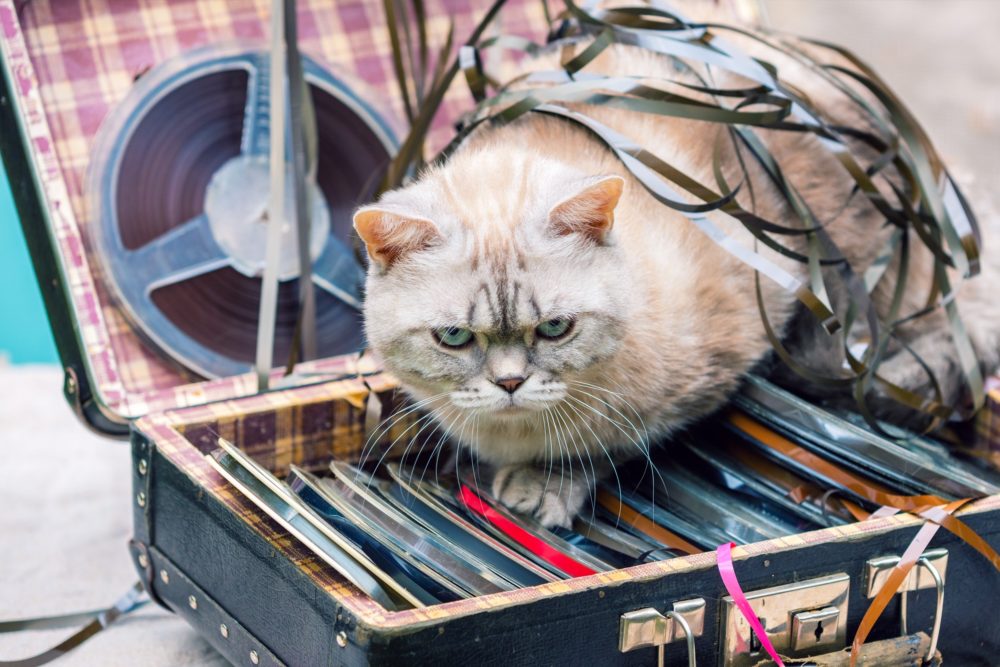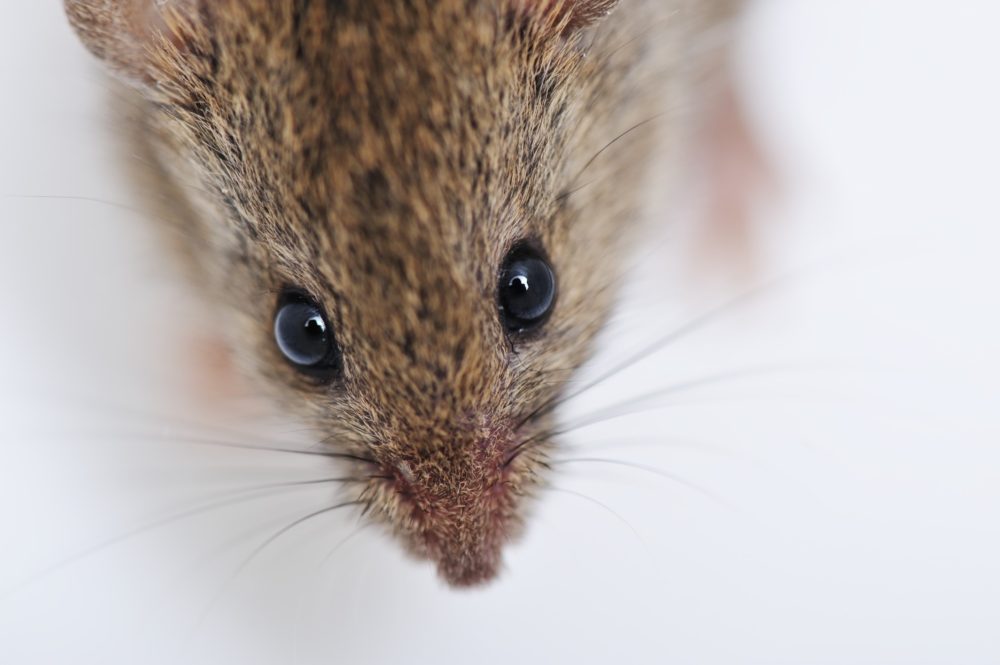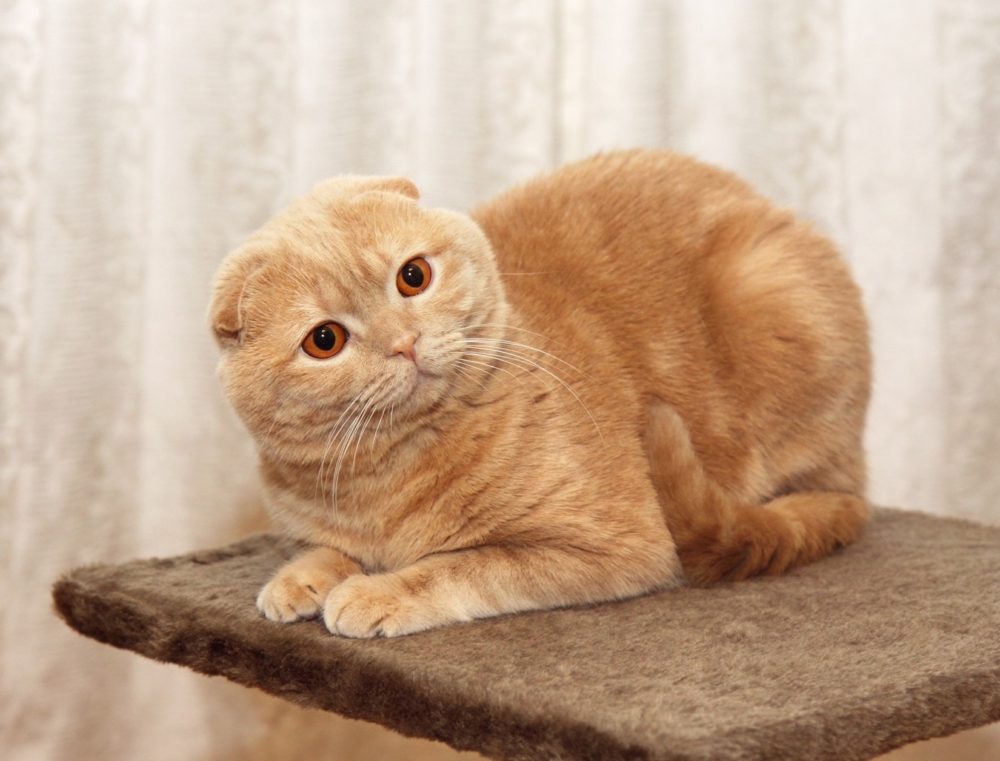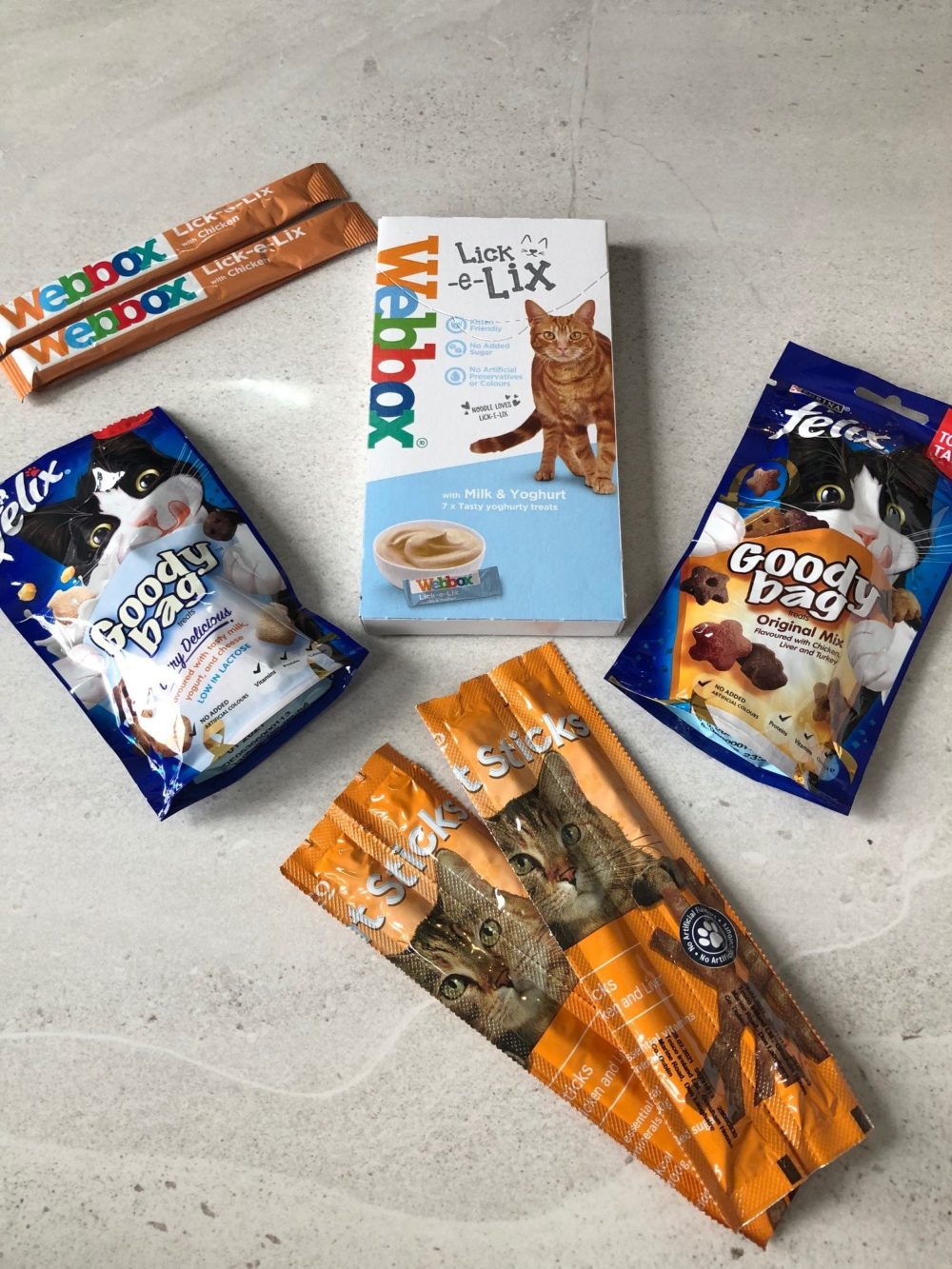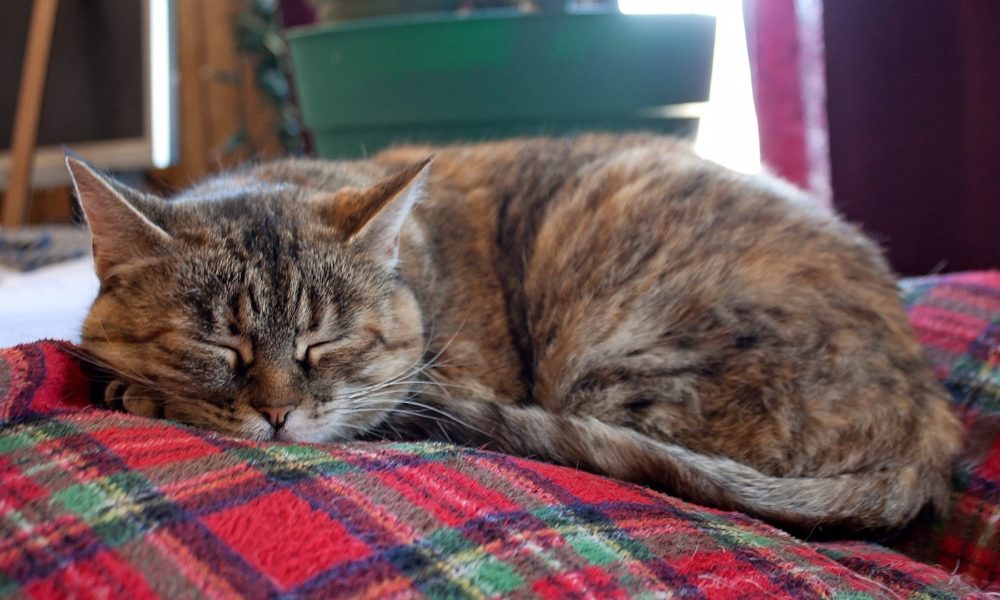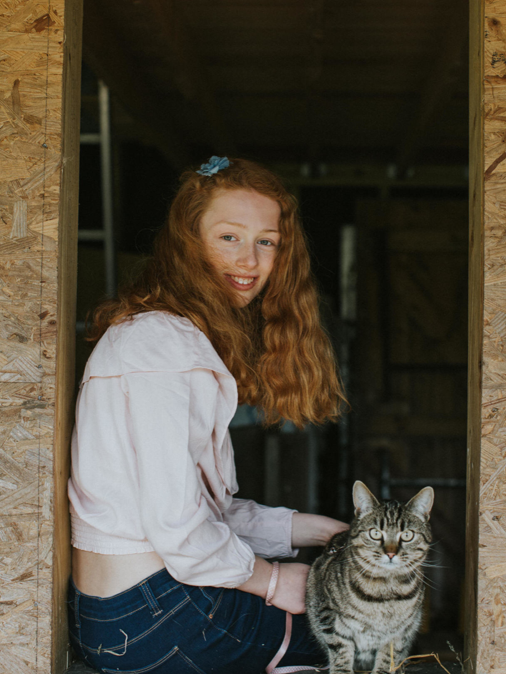
Are cats loyal? Tales of loyal cats
Pet owners have debated the subject of loyalty from their pets for a long time. It seems dog owners are categorically certain of a dog’s loyalty to their owners. Yet, in the cat world, opinions have varied greatly. Many believe cats are the masters in this pet-owner relationship. And up until recently, scientific evidence seemed lacking when it came to proving the loyalty of cats. But new research from Oregon State university has proved that cats are just as loyal as dogs towards their owners.
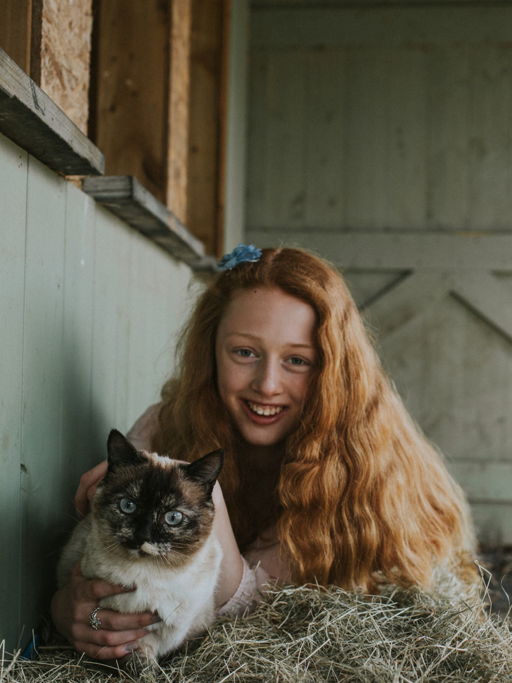
So, are cats loyal?
It seems that cats are indeed loyal. The researchers from Oregon State university discovered that cats do form emotional attachments to their owners / caregivers. This emotional attachment, known as “secure attachment,” has long been recognized between children and their caregivers, and between dogs and their caregivers. But now it’s been seen that cats also display this attachment. ‘Secure attachment’ is defined as “when the presence of a caregiver helps them to feel secure and calm”.
This study looked at the relationship of 108 cats and their owners. These cats included 70 kittens and 38 adult cats. One of the experiments conducted saw the cats being placed in a strange, new room with their owner. After two minutes their owner left the room and returned after two minutes. 64.3% of the cats showed signs of ‘secure attachment’, i.e. when their owners returned, the cats became more relaxed and resorted to exploring or seeking affection. The remainder of the cats either avoided their owners completely or became overly clingy. This study replicates tests carried out in the 1970’s to determine parent-infant bonds. Within the children study, 65% of children displayed similar secure attachment characteristics. And perhaps somewhat surprisingly, when the study was conducted with dogs, 58% of dogs displayed signs of secure attachment.
The leader of this study, Dr Kristyn Vitale, explains that there has been a long-standing belief that all cats will run and hide, or act aloof, when they feel insecure. But this study reveals that cats will depend on their owners for security when feeling stressed. Having this new knowledge can impact the way owners can support their cats in stressful situations.
For more information on this study, please refer to the link below
How do cats show loyalty?
The misconception that cats are not loyal is often derived from comparing cat behavior to dogs. But its important to remember how different these two species are. Dogs obey human instructions, follow them around, learn many tricks easily and view their owners as the dominant one of the relationship. Where as cats, generally, do not follow orders in the same way, cannot be taught tricks as easily and are not seen to view their owners as the master.
But they show they loyalty in different ways and these signals are often subtle und could be easily missed. Cats communicate in a variety of different way using a mixture of their vocal, visual, tactile and scent senses. The signs of loyalty from your cat include:
Purring
Cats can start to purr from as young as two days old. Purring is a soft, vibrating noise and usually expressed when happy and content. Kittens often purr when they are being nursed as a sign of being content and the mother may also purr in return to reassure the kittens. But please be aware that cats also purr when experiencing trauma or pain such as during labour or when in pain.
A slow blink
When a cat is calm and contented, they can communicate this to humans by a slow blink. Lowering their eyelids or blinking slowly is a signal of trust and friendliness and these slow blinks are known as cat kisses. Many cat experts suggest returning this slow blink gesture to communicate back to your cat that you are aware of her presence and that you signal back the message of calmness and love.
A vertical tail
A cat’s tail will communicate quite clearly the emotion of your cat. A tail can quickly move from one position to another and sometimes it may be hard to read your cat’s emotion via their tail only. If a cat’s tail is vertical, then your cat is happy and confident. Similarly, a vertical tail with the tip slightly bent indicates a friendly mood. Signs of security and attachment are also displayed by cats by wrapping their tails around your legs and arms or by resting their tails on you. Cats also display happiness and love by fluffing out the root of their tail.
Showing their belly
When a cat is lying on her back with belly exposed, this is a position of vulnerability and so communicating trust and comfort. It means they feel safe in your company and a very clear indicator of love and loyalty towards you.
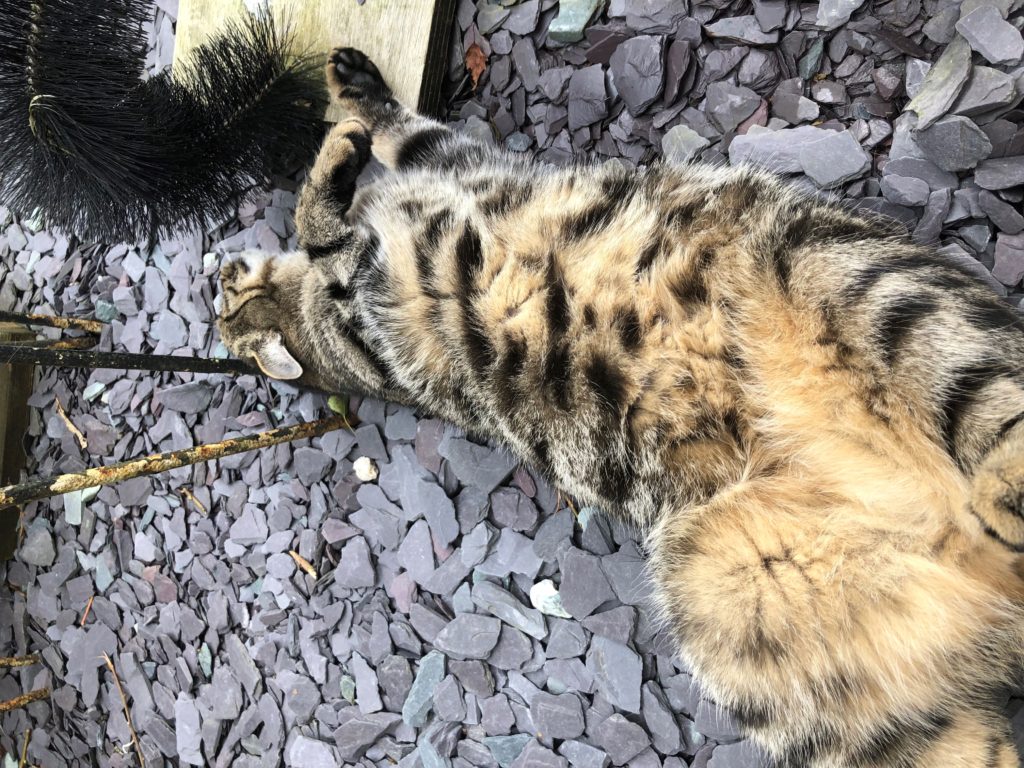
Cheek rubs and head bunting
This is a greeting reserved for those that cats trust, and to display affection. Cats have scent glands around their mouth and cheeks and cheek rubbing will release pheromones. This is also a sign of ownership and can be an invitation to socialize.
Grooming
Cats spend a great deal of time grooming themselves. But they will also lick each other as a sign of affection or for bonding. This is known as allogrooming. They will also lick humans as a sign of warmth and friendliness. Grooming you lets them combine your scent and theirs. This stems from a relationship of trust and is a way of them recognising you as family.
Spending time with you
What better way to display love, loyalty and fondness by simply wanting to spend time together? You cat may follow you around, curl up on your lap, simply sit beside you or reach out a little paw to you. All signs that they simply want and enjoy your company and your presence.
All these love and loyalty signs are there and are being communicated daily by your cat. sometimes we need to stop, observe and embrace these messages. For a detailed insight into what your cat is trying to tell you, check out our article on ‘Cat communication’.
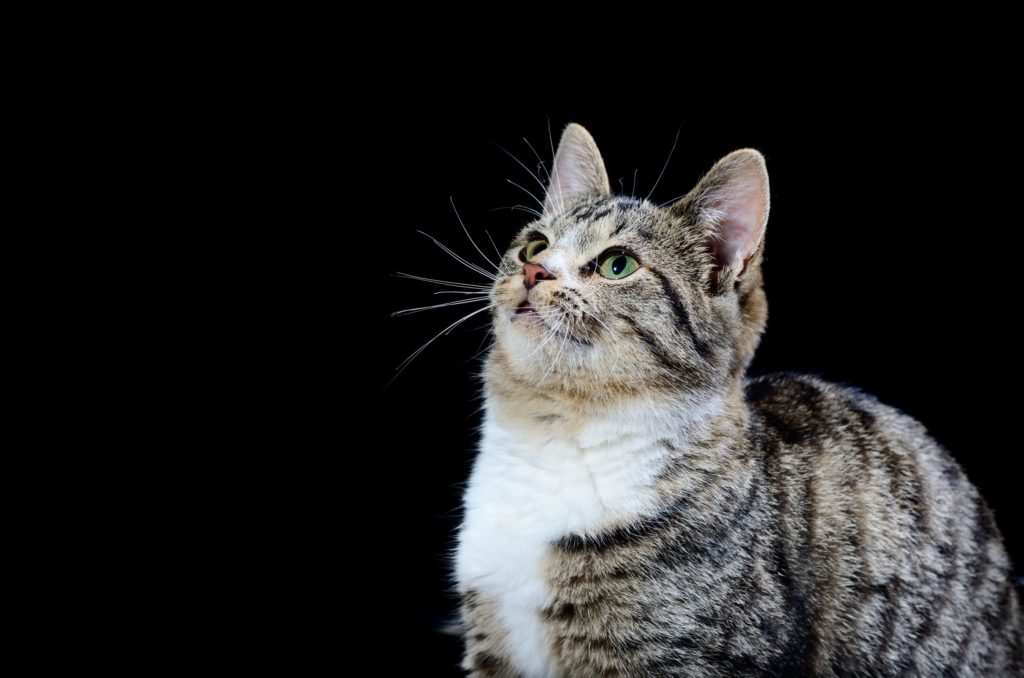
Tales of loyal cats
There are many a tale of loyal cats, some heroic, some brave and feisty. A beautiful book, for both children and adults is ‘Rebel Cats – Brave tales of feisty Felines’ by Kymberlie Hamilton which includes several stories of some real life heroic cats from historical times to today. So many cats have played a role in both world wars be they morale boosters, being great rat and mouse catchers or even being a spy! (A Russian spy cat called Mourka carried messages to and fro regarding the location of German troops!)
A cat who discovered worldwide fame due to her loyalty and sheer bravery was Tara, a female tabby cat living in California. A neighbour’s dog attacked the family’s young child while he was playing on his bike. Tara bravely attacked the dog and chased it away. All this was captured on the family’s home surveillance. Within 48 hours of being uploaded onto You Tube, the footage received over 16.8 million views in 48 hours.
Schnautzie saved her owners life when she was still just a little kitten herself. In October 2007, in the middle of the night, Schnautzie tried several times to wake her owners up. Unable to wake them initially the little kitten persisted until Trudy Greg woke up. Sensing something was up with Schnautzie, and in particular her consistent sniffing of the air, they realized they had a gas leak. They evacuated to safety.
A Californian family cat called Lucy protected a young child from a deadly rattlesnake, which had found its way into the child’ room. Lucy went into protection mode, lay beside the child and refusing to leave until the snake was removed.
Tommy, an orange and tan striped cat, somehow managed to call 911. Tommy’s owner, Gary, was wheelchair bound. He fell out of bed and was unable to reach the emergency alert cord. Paramedics arrived at the home to find Tommy lying next to the phone.
Possibly the most famous of all cat loyalty stories demonstrating the mutual loyalty and love towards each other is the tale of Street cat Bob. On a cold night in London a street musician called James found an injured and hungry tomcat. James fed the cat and used what little money he had on medication for the injured cat. He named the cat Bob. From then on, they were never apart. Bob stayed with James, never leaving his side. People began to notice James and Bob – James playing songs on his guitar on street corners whilst Bob would sit on his guitar case by his side. As their pictures and videos spread, an agent spotted the pair and decided it would make a great story. The rest is history as they say. The book ‘A Street Cat named Bob’ was a bestseller around the world, followed by a film. Bob played himself in most of the scenes and even got to meet the Duchess of Cambridge on the red carpet premier!
Are male or female cats more loyal?
Although there are various factors to consider when deciding whether to have a male or female cat, there is currently no evidence to support that either gender is more loyal than the other.
What cat breeds are most loyal?
Cat owners, cat experts and vets on the whole agree that there is no guarantee of cat loyalty based on breed, sex or color. The loyalty and love that a cat receives, and the environment it lives in on a daily basis is far more likely to influence loyalty than any other factor. There are certain traits in some breeds though, although certainly not guaranteed, that make their loyalty perhaps seem more prominent. For examples;
Siamese
The Siamese cat can appear unfriendly and detached but this really isn’t the case. They are a breed of cat where family is of huge importance to them and they form very strong bonds within their families. They are social cats who tend to adore their caregivers and will be eager to spend as much time as possible with that person. This in turn builds into a strong loyal bond.
Ragdoll
The Ragdoll breed of cat are large, fluffy and are very calm and loving. They adore attention and will happily return love and loyalty in abundance.
Abyssinian Cats
These cats tend to want quite a lot of attention but on their own terms. They love to play and are very energetic. They develop a close relationship with their owners over time and like them to be nearby all the time.
Exotic Shorthair
These super cute, low maintenance, friendly cats are so easy to get along with. They are a popular breed of cat who will enjoy company and therefore developing close bonds and loyalty will follow very quickly.
Burmese
This is one of the most loyal breeds of cat there is. They can appear aloof and unfriendly to visitors and callers by but are intensely loyal to their family and caregivers.
Sphynx
This distinctive hairless breed is very affectionate and loving and are known to be fiercely loyal.
The breeds listed above is by no means exhaustive. A cat’s individual personality, and the input and environment it grows up in will also have a huge impact on the loyalty they return.
In Summary:
Having two cats ourselves we didn’t really need science to prove that cats are loyal. Their interaction with us when we are feeling sad or happy, or seeing our two cats coming to us when they are feeling scared or poorly is a clear indication of mutual love, respect and loyalty. Of course, there will be personality differences between certain cats and certain breeds but on the whole, treating your cats with love and respect will earn loyalty. Their needs vary as they grow and develop and it is up to us as owners to take the time to observe, learn and understand what best suits their needs at different times of their lives. Our whole website is dedicated to be a continual learning curve into the world of our feline friends and delving deeper into their needs and wellbeing.
Other articles you may find useful:
How much time should I spend with my cat? Why do cats need attention?
How to keep your cat happy – 10 key factors
16 Top tips to ensure the senior years are comfortable for your old cat
18 games to play with your cat
